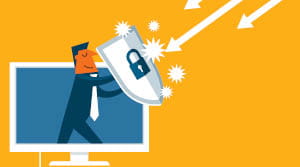6 quick steps to help you get and keep your debt under control

Many of us have been there before: too many bills and not enough money to pay them. How we respond when we face these challenges often makes the difference between quickly taking control of the issue versus letting it linger and consume your finances much longer than it should.
Taking quick action is your best bet rather than procrastinating in the hope that it will go away. While it can be tough to find a path forward, if you forge ahead, your future self will thank you. Here are six steps to get you started:
- First and foremost, take action now. Waiting and worrying is not good for your financial health or your emotional health. By being proactive, you are investing in yourself and your future and you can be proud you quickly addressed the challenge.
- Rip off the bandage. Add up all of your income and expenses so you know exactly where you stand financially and where every cent is going. Prioritize your essential expenses to help sustain you and your family. These generally include shelter, food, utilities, child support and sometimes transportation. Then look for ways to reduce spending and expenses—and, if possible, increase your income—then revise your budget accordingly.
- It’s wise to immediately contact your creditors and let them know your situation. Many creditors are willing to work with you to develop a payment plan that will fit within your budget. They might agree to a payment plan, allow you to skip a few payments and tack them onto the end of a loan term, or waive late fees. Don’t assume your creditors are your foe.
- Contact your mortgage loan servicer to learn what options might be available. Consider refinancing your mortgage to consolidate debt and reduce monthly payments. Depending on current loan rates, you may be able to secure a lower interest rate, which will continue to benefit you for years to come.
- Consider reaching out to a nonprofit consumer credit counseling agency. They can sometimes negotiate lower payments and interest rates and they are always on your side as they help you consider your options. NOTE: Debt-settlement companies are not the same as nonprofit credit counseling agencies and we advise caution when working with them.
- Consult with a lawyer: If you need help deciding which course of action is best for you, consider consulting with a debt relief lawyer to get more information.
Another factor to consider in debt repayment includes the type of debt you owe. That will determine what collection actions your creditors are allowed to take and how much time it will take for that process to conclude.
- Secured debt. Secured debt, such as mortgages or car loans, give creditors special rights to collect from property that you put up as collateral to get the loan. If you don’t pay a secured debt, the lender can take steps to collect, including foreclosure and/or repossession.
- Unsecured debt. Unsecured debt, such as most credit card debt, generally requires the creditor to file a lawsuit against you and obtain a judgment before taking collection action. Once a judgment is made, they can garnish your wages or bank account or place liens against real estate.
- Government debt. Government debt, such as taxes, domestic support or student loans, are unsecured, but creditors have special collection rights. In most cases, the government can take your tax refunds to pay off your debt and can garnish your wages or Social Security without first getting a lawsuit judgment.
If you have more questions, your banker is a good source of information and can talk you through your specific situation, including referring you to other experts as you work through paying down your debt. You can do this!





















